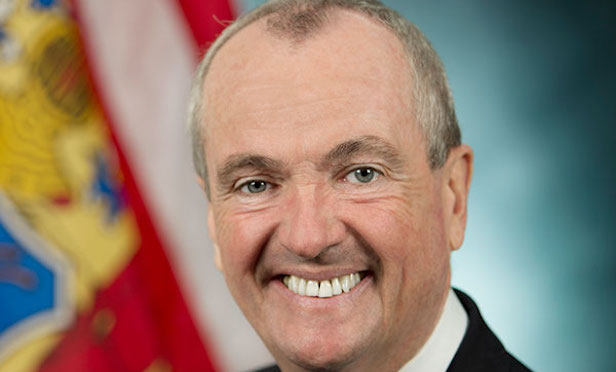PATERSON, NJ—Gov. Phil Murphy and officials with St. Joseph's Health here announced on Wednesday the first project under a state partnership to promote hospital investment in affordable and supportive housing in their communities.
The New Jersey Housing and Mortgage Finance Agency's $12-million Hospital Partnership Subsidy Program is matching funding contributions from participating hospitals to provide rental housing affordable for low- and moderate-income families. The developments also must include units set aside for special needs residents and/or individuals experiencing frequent utilization of hospital emergency department services.
“New Jersey is leading the way in developing groundbreaking tools that strengthen communities, grow our economy, and create housing opportunities that enable families to succeed,” said Gov. Murphy. “By supporting these partnerships and providing stable housing and supportive services to help vulnerable residents, we are reinforcing our core values and investing in a stronger New Jersey.”
The proposed Barclay Street housing development, the first project announced under the partnership program, involves the construction of a multi-story building, in an Opportunity Zone, to house one- to three-bedroom apartments affordable to families, potentially including hospital employees. The project's developer will be Paterson-based New Jersey Community Development Corp.
“Housing as a key variable to maintaining good health cannot be underestimated. Quite simply, housing is health care,” said NJHMFA executive director Charles A. Richman. “As anchor institutions in their communities, hospitals can play a leading role in the creation of housing that is affordable to families, nurses, and other hospital staff, and also take specific measures to help reduce the health and hospital costs associated with the frequent and unnecessary use of emergency hospital services and get them the supportive housing they need to sustain healthy living.”
The Hospital Partnership Subsidy Program is initially expected to fund four to five developments with partnering hospitals, with St. Joseph's being the first to move forward. Eight New Jersey hospitals have expressed interest in participating in the program, state officials said. Additional hospital partners will be announced later this year.
The development, which will cost approximately $20.3 million to build, pairs a $3-million subsidy loan contributed by NJHMFA under the partnership program with about $3-million contributed from St. Joseph's. St. Joseph's owns the Barclay Street site and is donating it for the development. In addition, DCA will provide 10 project-based housing vouchers for the project upon completion.
The developer is expected to apply to NJHMFA for four percent Low Income Housing Tax Credits, which would generate $7.6 million in private equity. NJHMFA is also expected to provide approximately $10.9 million in construction and permanent financing and $1 million from its Special Needs Housing Trust Fund, which provides financing to create permanent supportive homes in the community for residents with special needs.
Construction on the Barclay Street housing development is expected to begin in the winter of 2020, with completion expected in the spring of 2021.
“We are very proud to build the first housing unit as part of the Hospital Partnership Subsidy Program and to create a space outside our hospital walls that addresses the health needs within our community,” said Kevin J. Slavin, president and CEO of St. Joseph's Health. “Access to safe, quality, affordable housing – and the supports necessary to maintain that housing – constitute one of the most basic and powerful social determinants of health.”
Rents will be affordable, based on the U.S. Department of Housing and Urban Development guidelines. The development will also include a 15,000 square foot community meeting space, which will be open to the public.
© Touchpoint Markets, All Rights Reserved. Request academic re-use from www.copyright.com. All other uses, submit a request to [email protected]. For more inforrmation visit Asset & Logo Licensing.








